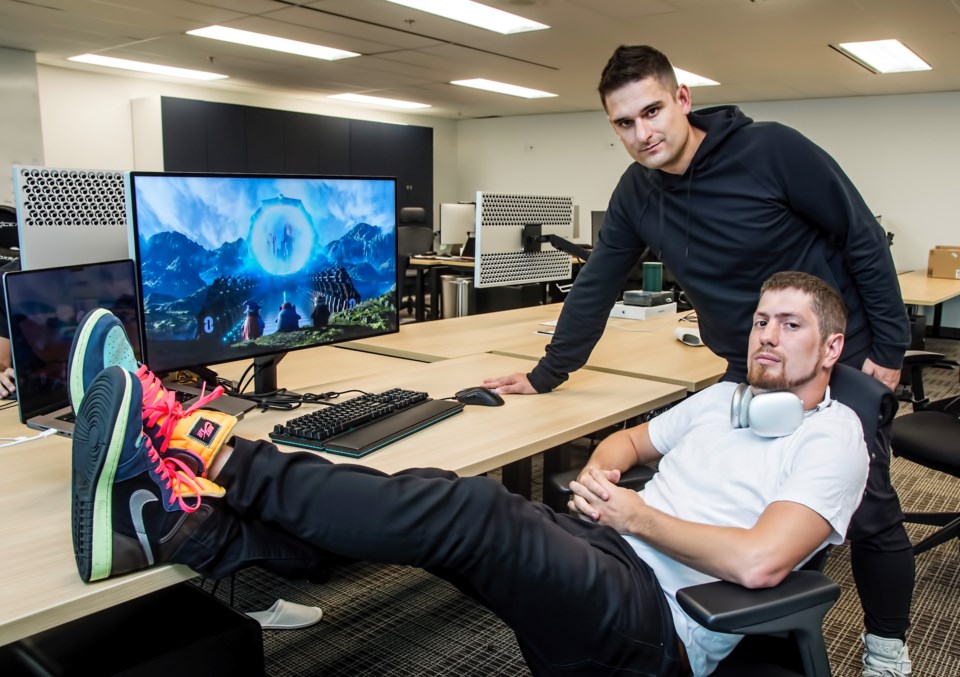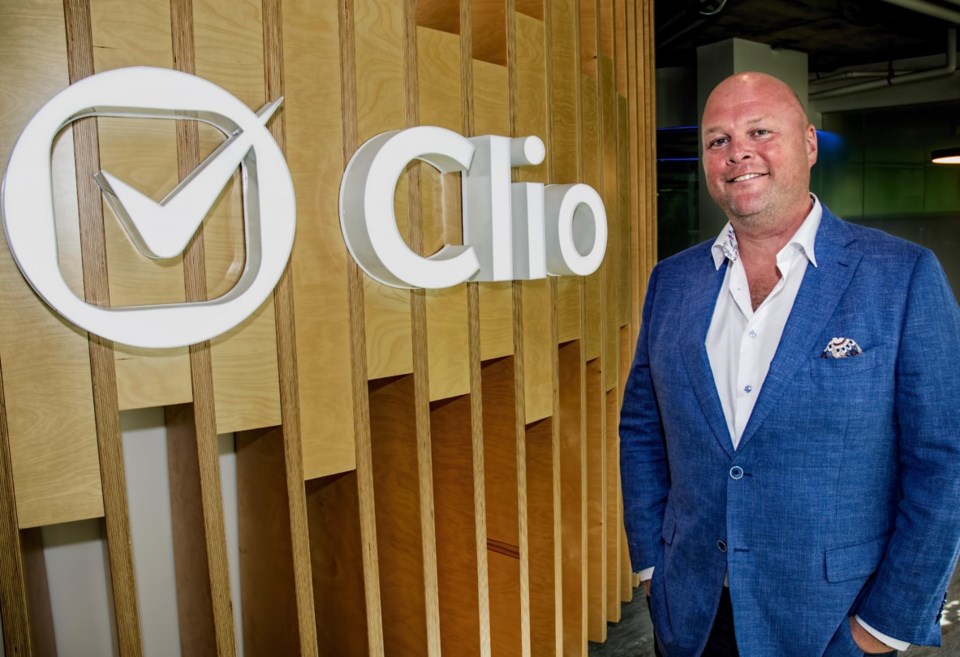Technology entrepreneurs this week are converging on Vancouver to network at Web Summit and learn how to approach and scale their businesses.
Successful Vancouver-based founders are some of those sharing their tips on how to attract investors to scale their ventures into multibillion-dollar companies, and how to get along as co-founders to ensure the success of the businesses.
One lesson Vancouver-based Clio (Themis Solutions Inc.) co-founder Jack Newton shared in a speech this afternoon at Web Summit is to focus on a clear and small niche and do it well.
His company last summer raised US$900 million from a range of investors, including New Enterprise Associates. That valued the company at about US$3 billion.
Newton called these niches “verticals,” and equated them with companies that seek to provide “horizontal” technologies that solve a whole bunch of different problems.
Focusing on niches “positions you for a much deeper and expansive opportunity to deliver truly deep value to that vertical, and you're able to build a product that is fit perfectly for that vertical, and that will eventually see you outpace and displace the horizontal players in that space,” he said.
Another major thing for any entrepreneur is to know your company inside out. That includes all potential challenges and the potential solutions to problems and challenges with each of those, according to Bryan Pellegrino. He co-founded LayerZero Labs Canada Inc. with Ryan Zarick and Caleb Banister in 2021, and watched the firm attract capital that valued it at around US$3 billion in 2023.
“We had a culture of extreme debate,” said Pellegrino, whose venture connects blockchains and allows different blockchains to communicate with each other.
“We would whiteboard and debate everything. We had argued every point, and trade-off and consideration.”
The result, he said, was that when the company went to seek venture capital funding, the investors it approached would have questions that Pellegrino described as being “kind of quaint.”
Answers he and other co-founders provided showed that they had thought about all potential problems much more than had the potential investor, he said.
Investors, he added, have a lot of things to worry about—a lot of risk.
“They need to underwrite the idea,” he said on a Web Summit panel Wednesday.
“They need to underwrite the market. They need to underwrite all these things, so if you can take away some of that risk on their end by being very clear that you know the problem that you're solving, then they just need to bet on you and the market. It makes it so much easier for them to do.”

Bryan Pellegrino (in white) and Ryan Zarick are two of the three co-founders of LayerZero. Caleb Banister is the co-founder missing in the photo | Chung Chow, BIV
Getting the right investors involved is also an important consideration, he said.
Pellegrino said his company once turned down an investment that would have valued LayerZero at US$1.5 billion.
Instead it took a US$135-million capital raise in 2022 that valued the company at US$1 billion.
The rationale for that move was “to make sure we got the right investors involved,” he said.
“That's how we got a16z (Andreessen Horowitz) and Sequoia [Capital] in a dual term sheet to co-lead that round.”
Achieving that capital raise was built on giving executives at those large investment firms confidence in LayerZero’s executive team, which eliminated some investment risk, Pellegrino said.
Another tip Pellegrino has is to play hard to get and use momentum when it arrives.
He and his co-founders told everyone that they were not raising capital.
“We got a term sheet from Sequoia and then we told everybody, ‘Hey, we got a term sheet. We still don't know if we're raising,’” he said.
“It really turned out like a very crazy process in a very short period of time. We pitched the very next day to a16z and it was like 40 people on a Zoom call.”
He said other large investor groups, such as Tiger Global LLC, soon afterward came on board.
Some entrepreneurs struggle with the question of whether to focus first on profitability, or whether to prioritize scaling ventures to be as large as possible.
For Pellegrino, the early choice was clearly to scale to be as large as possible quickly.
Investor money was flowing and they could start scaling up their employee count, which was at about seven people when the first major investment arrived a few years ago.
The company now has 115 staff, he said.
“We're much more focused on real revenue now but, in the beginning, it was it was on winning the market,” he said.
Vancouver-based serial investor and author Tanis Jorge shared her lessons from co-founding ventures such as Trulioo Information Services Inc., where she is no longer an executive or a director, according to the company's website. That company rose to be valued at about US$1.75 billion in 2021.
She also founded Vancouver-based The Cofounders Hub, which provides advice to co-founders of companies.
Her biggest lesson for co-founders is to ensure each knows what is expected of them, and what area of the business they are expected to focus on.
“That way we can divide and conquer, and we can be as efficient as possible,” she said on a Web Summit panel Wednesday.
While it is important for each to work within their silos, each must also understand the entire business, she said.
“Have your finger on the pulse of everything, so that if something happens with your co-founder, you can pick up the ball where they dropped it,” she said.
Co-founders need to set meeting times to discuss business. Disagreements will arise, she said.
Those co-founders need to hash things out and challenge each other to make convincing arguments that they are right.
Each then needs to reflect on whether they can yield.
“It's really determining, ‘Is this the hill that I want to die on? Or is this something that I can trust my co-founder?”
Bluesky.com/glenkorstrom.bsky.social



